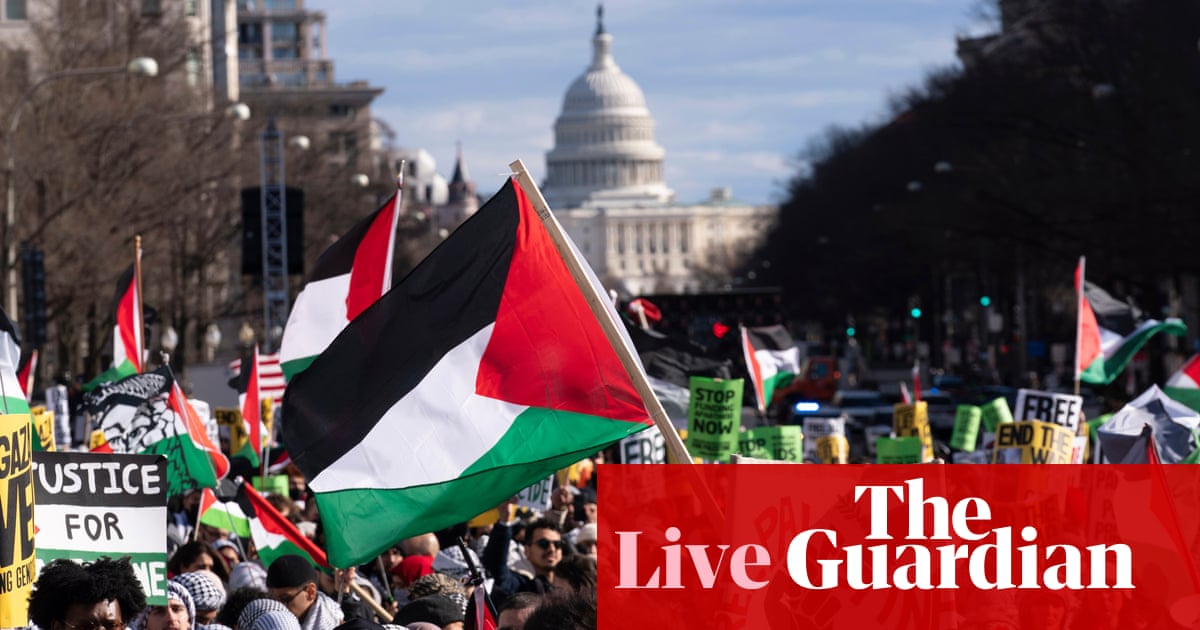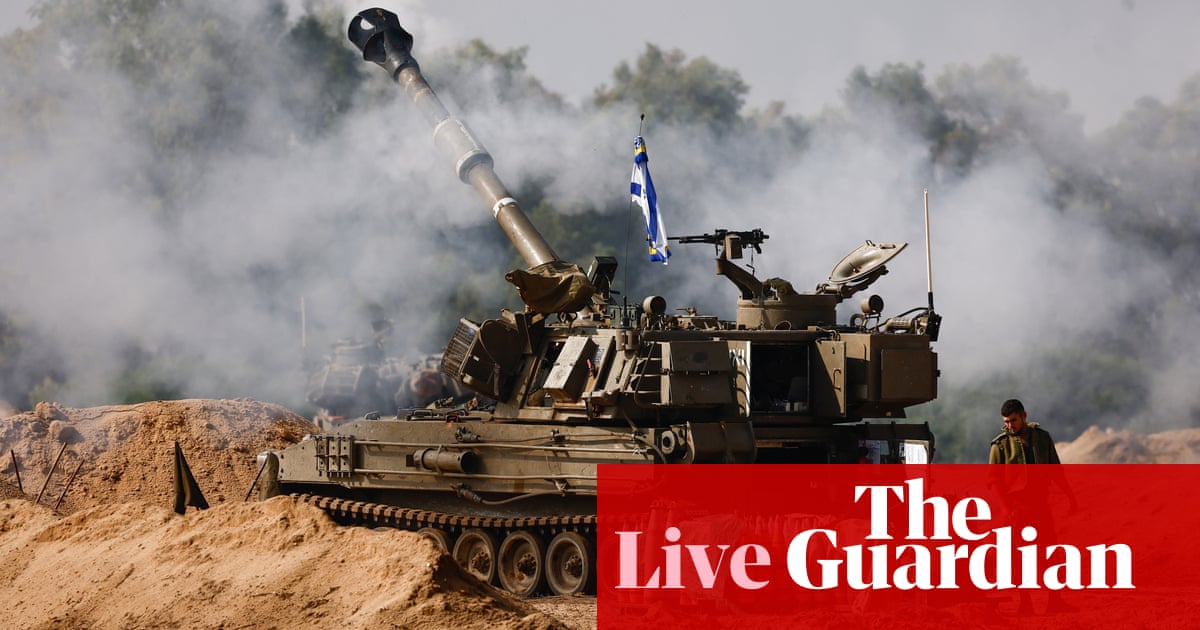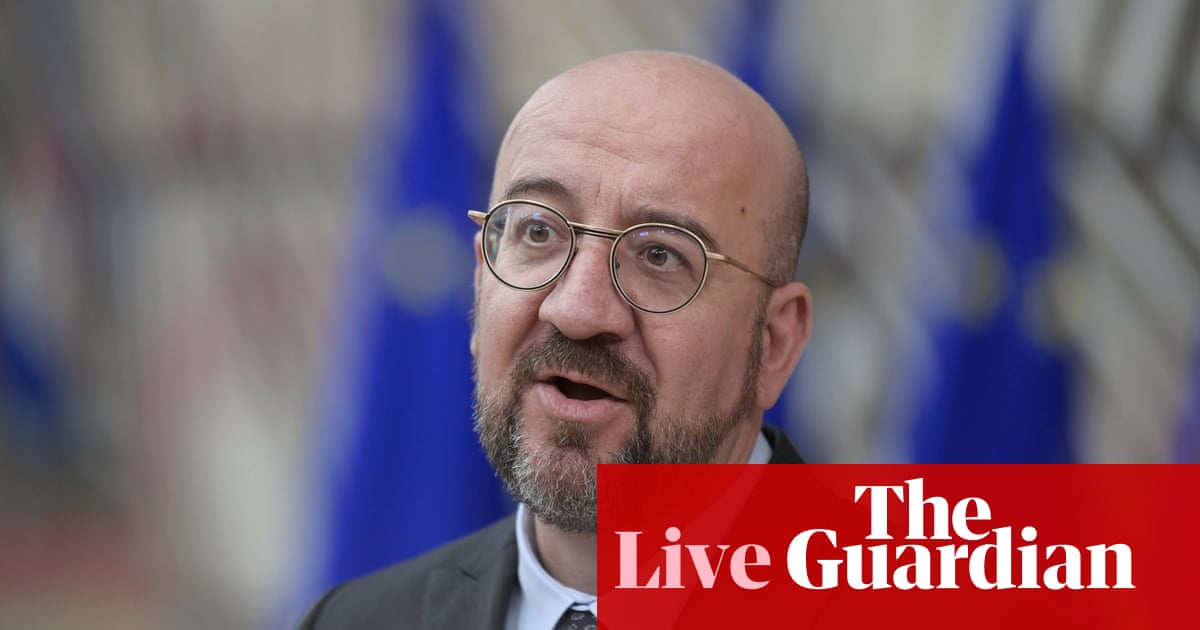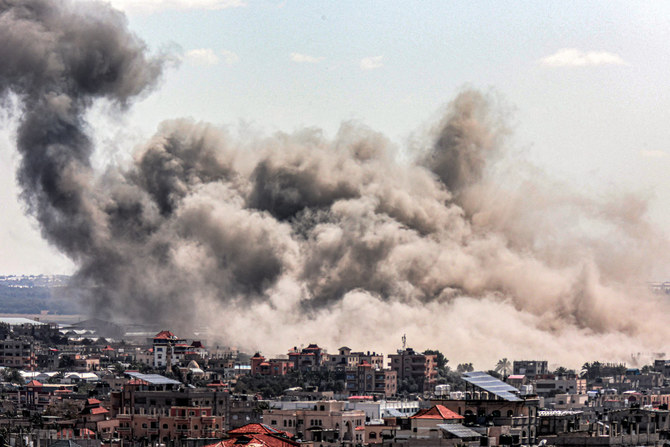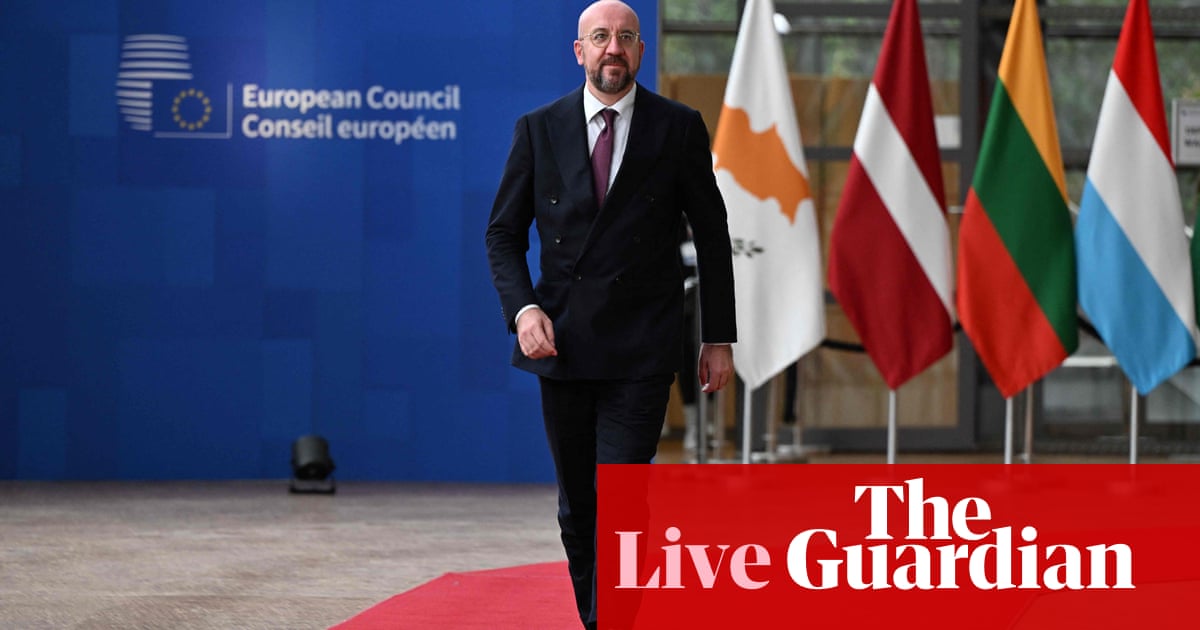
EU leaders reach agreement on Middle East
Leaders have reached agreement on the Middle East.
In a compromise text, agreed after hours of discussions, heads of state and government from the EU’s 27 members declared that the EU “reiterates the importance of ensuring the protection of all civilians at all times in line with international humanitarian law” and “deplores all loss of civilian life.”
The leaders also said that they are concerned about deteriorating humanitarian conditions in Gaza and called for aid “including humanitarian corridors and pauses for humanitarian needs.”
In a concession to Spain, new wording was added to the final text that the European Council “supports the holding of an international peace conference soon.”
Summit ends for today
The first day of the European Council summit has ended. A press conference will follow soon – stay tuned.
“Unity is our strength,” European Council president Charles Michel tweets after hours of talks among EU leaders led to a compromise text on the Middle East calling for humanitarian corridors and “pauses”.
The EU leaders’ compromise text has gotten a brief mention in Israeli media tonight.
European politicians’ debates on Israel and Gaza over the past days have in general garnered very little attention in the country.
EU leaders are now discussing the bloc’s long-term budget.
EU leaders reach agreement on Middle East
Leaders have reached agreement on the Middle East.
In a compromise text, agreed after hours of discussions, heads of state and government from the EU’s 27 members declared that the EU “reiterates the importance of ensuring the protection of all civilians at all times in line with international humanitarian law” and “deplores all loss of civilian life.”
The leaders also said that they are concerned about deteriorating humanitarian conditions in Gaza and called for aid “including humanitarian corridors and pauses for humanitarian needs.”
In a concession to Spain, new wording was added to the final text that the European Council “supports the holding of an international peace conference soon.”
Leaders go to dinner
The leaders’ dinner has started. The discussion on the Middle East will continue, and then leaders will move on to discuss the bloc’s long-term budget, an EU official said.
Short night in sight? Send us your best guess on how much longer EU leaders will continue debating tonight.
Kosovo claims Serbia refuses deal
Hopes that talks to ease tensions between Serbia and Kosovo could restart were dashed on Thursday after Pristina claimed Belgrade would not sign up to a new deal.
After five hours of meetings in Brussels led by the leaders of France, Germany and Italy it appeared progress was being made with Kosovo agreeing to sign up a new framework to manage the north of the country in which the majority of the population is Serbian.
The deal would have allowed an element of self-management of the region where about 60,000 people live following a fresh proposal for a solution by a high-powered EU and US delegation that visited both capitals on Saturday.
In a statement, Kosovo said it accepted the EU proposal dating from February and a supplementary deal known as the “Ohrid annex” signed in March.
But Jeton Zulfaj, political adviser to the prime minister, Albin Kurti, said the president of Serbia Aleksandar Vučić had refused to sign up to the EU proposals.
“Today Prime Minister Albin Kurti offered to sign the agreement for the third time, now with the Annex and with EU-US proposal for self- management. Vucic refused.
“It is clear that Serbia does not want normalisations of relations with Kosova nor self-management for Kosova Serbs,” he said.
The EU summit looked like it might move quickly to agree a text on the Middle East. But no summit is complete without a last minute hitch.
Informed sources are saying that “as many as 25” countries of the 27 agree on the latest text on the Middle East, but they refuse to comment on rumours that Spain is looking to strengthen the language to include “something like a ceasefire”.
Dinner was scheduled for 7.30pm but the conversation about the Middle East continues with rumours that Spain is not completely on board with the text.
The latest draft of the declaration includes a new paragraph to give comfort to countries who wanted stronger language to ensure Gaza aid could not be cut off.
“The European Council reiterates the importance of ensuring the protection of all civilians at all times in line with international humanitarian law. It deplores all loss of civilian life”.
Zelenskiy to European leaders: counter a "second front" in Middle East
Speaking to European leaders via videoconference this evening, Ukrainian president Volodymyr Zelenskiy said he just signed a key law to help meet European requirements for opening negotiations on Ukraine’s membership in the EU.
He also thanked EU countries for their continued military assistance.
“Sustainable arms supplies for Ukraine mean sustainable security for the whole Europe – for each of our neighbors,” the Ukrainian leader said.
He emphasised the importance of long-term support.
In confrontations such as the one unleashed by Russia, the winner is the one who provides a long-term strategy. Russia needs to see that its ambitions as an invader will endure less than our ability to defend our freedom. That is why every approved program of such long-term support for Ukraine is a clear signal to Russia that its aggression is in vain, and that no matter how many resources Putin spends in the war, he will not win.
Zelenskiy also addressed the situation in Israel and Gaza, underscoring that a “second front” should be avoided.
We must do everything to prevent an even larger international fire from breaking out in the Middle East. The enemies of freedom are very interested in bringing the free world to the second front… We must clearly see this scenario and counter it – together, of course. I thank all the leaders whose active diplomacy is already working to promote security. The sooner security prevails in the Middle East, the sooner we will restore security here – in Europe.
The EU leaders are still debating the Middle East. Stay tuned.
On the sidelines of the summit, leaders of Estonia, Finland and Sweden are discussing the security of undersea infrastructure.
Hungary’s Viktor Orbán appears excited at the return of Slovakia’s Robert Fico to office.
EU leaders are focusing heavily this evening on the Middle East, with discussions expected to revolve around how to frame calls for a humanitarian pause.
But in Israel, no one is really paying attention.
Headlines in leading Israeli media outlets don’t even mention the summit, underscoring the wide gap between the politics of the moment in Europe and the reality on the ground, where the EU has very little leverage and a highly limited political role.
EU leaders could sign off on the new text calling for a humanitarian pause to shelling in Israel before dinner, it has emerged.
After an appeal to European Council president Charles Michel, leaders agreed to discuss the Middle East first and move the discussion on the bloc’s long-term budget to dinner.
Some progress in Kosovo-Serbia talks
Progress of sorts has been made in the talks in the sidelines of the summit on the standoff between Kosovo and Serbia after separate meetings with the French, Italian and German leaders in Brussels.
Giorgia Meloni has stated that she has asked the prime minister of Kosovo, Albin Kurti, and the Serbian president, Aleksandar Vučić, to implement the agreements sealed earlier this year.
“We will see how the day will go and we hope to make a step forward”, said the Italian prime minister.
After meetings that lasted over an hour, Kurti and Vučić headed to separate talks with the EU envoy Miroslav Lajčák.
Albanian prime minister Edi Rama raised a flicker of hope of a breakthrough after he claimed advances had been made.
I commend the prime minister of Kosova for accepting the EU proposal to advance firmly towards a deblocking solution on ASM [Association of Serb Majority Municipalities] through self-management instruments as a framework for upcoming negotiations. This is indeed an important milestone. The leaders of Kosovo and Serbia should demonstrate leadership and work closely with our western partners to promptly implement the Basic Agreement on the normalisation of relations, without any further delays. Our region deserves peace, stability, and cooperation for a shared, better future, rather than conflicts, blame games, and setbacks that harm us all.
Leaders consider new text on Israel and Gaza
EU leaders currently meeting in Brussels are considering an amended text on the sensitive issue of Israel and Gaza.
The new draft, seen by the Guardian, includes new phrasing that “the European Council reiterates the importance of ensuring the protection of all civilians at all times in line with international humanitarian law. It deplores all loss of civilian life.”
It also includes new wording on humanitarian needs.
“The European Council expresses its gravest concern for the deteriorating humanitarian situation in Gaza and calls for continued, rapid, safe and unhindered humanitarian access and aid to reach those in need through all necessary measures including humanitarian corridors and pauses for humanitarian needs.”
Evika Siliņa, Latvia’s prime minister, has stressed that the bloc needs to be united on both Ukraine and the Middle East.
She also highlighted that the EU must provide predictable financial support to Kyiv.




